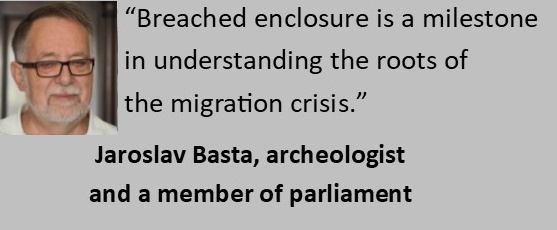Twenty years on, there are opinions among economists (and they are quite factually based) that the euro has contributed substantially to the redistribution of wealth from the southern EU countries towards Germany, which (thanks to economic conditions) has benefited the most from it. At the same time, the “European identity” was not so deeply rooted in the Member States that this redistribution was accepted. Is this not where the greatest danger lies that could destroy the project of European integration altogether?
There is no such degree of European identity that people do not mind being impoverished just so that the managers of German banks can be paid more. Let us not forget that even in Germany, life is not as good as it was years ago. In Germany, too, it is mainly a narrow layer of the very rich who are profiting from this project.
But overall, you are right. Germany and the Netherlands are exploiting the poorer countries of the Union, and the common currency is helping mightily. I remind you, however, that it is not the existence of the common currency itself that causes this, but the fact that its parameters are set according to German needs. The German Government has sufficient power to enforce its will against the will of any other state. This is the case in all European institutions, including the European Central Bank.
The German Government has sufficient power to enforce its will against the will of any other state in Europe.
Overall- has it turned out to be a good idea to start the integration of a supranational entity from a common currency?
The common currency was not the beginning. Many EU offices had been created, thousands of projects had been set up, the European Parliament had existed for many years, the European Constitution had been adopted before, the European courts were already in place… from the point of view of the advocates of the single state, the common currency was a quite logical step.
It might even have formed the European nation over time. What prevented that, however, was that people quickly realised that the project was directed against them. That it was aimed at destroying the nation states that provided them with protection, that it was only making the people easy prey for jihadists and all sorts of fanatics. I am not saying that all Europeans experience it in exactly this way, but if they feel any change between their original nation state and the new situation, it is clearly a change for the worse. There has been no improvement in any area – apart from the number of civil servants and corporate profits. How are you going to build a sense of common national identity on top of this?
What do you think about the attitude the Czech Republic has taken towards the single European currency? And do you expect any fundamental change in attitude with the new government?
That it was aimed at destroying the nation states that provided them with protection, that it was only making the people easy prey for jihadists and all sorts of fanatics.
I expect it to be like any other issue. The Fiala government does not want migration quotas – unless they decide otherwise in Brussels. It does not want to shut down power stations – unless Brussels decides otherwise. And it won’t want the Euro either – unless some pressure group in Brussels negotiates a Euro for the Czech Republic. No one will ask Mr. Fiala. And the citizens of the Czech Republic at all.


